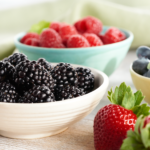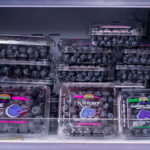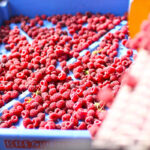ProChile expects strong future for maqui berry exports

A berry used traditionally by the indigenous Chilean Mapuche people as a natural remedy is now growing in popularity, classified as a superfruit. 
The sweet-tasting maqui berry, also known as Aristotelia chilensis, is only grown in southern Chile, predominantly in the X (Los Lagos) and XIV (Los Rios) regions and adjacent parts of Argentina.
It has experienced strong demand in developed markets recently thanks to its extremely high antioxidant levels.
The berry is a small fruit with a deep purple color, and despite its popularity in the south of Chile it is relatively unknown throughout much of the country.
Speaking to www.freshfruitportal.com at the Produce Marketing Association (PMA) Fruittrade Latin America being held in the capital Santiago this week, ProChile international deputy director Rafael Sabat said export volumes had been rising to key markets.
"We ship a lot to developed markets like Western Europe," he said, noting the rapidly growing demand for superfruits in these markets.
The value of exports rose 143% year-on-year up until July 2015, reaching US$2.1 million.
Of that figure, US$758,575 came from Japan, US$703,294 from Italy and US$421,474 from Germany, with those three markets representing 90% of the market share.
In addition, exports worth US$217,791 were shipped to the U.S, along with small volumes to Brazil and South Korea.
Sabat believed the fruit's nutritional properties would help push demand even further in the future.
The fruit also has potent anti-inflamatory properties which can help to reduce the risk of various degenerative diseases like Alzheimer's and Parkinson's.
The berry is also reported to help prevent chronic diseases such as cancer, diabetes, and me some cardiovascular diseases.
"It's a natural product, without chemical additives. It also appeals to all age groups, older adults and children," Sabat said.
The representative added the fruit was sold and consumed in various ways, including in a powder, dried fruit or concentrated juice.
"This morning for breakfast in fact I drank some juice with concentrated maqui before coming to this event. You can combine it with milk or yogurt," he said.
"Put a spoonful of the powder in your yogurt and you’re set for the day."
In general the fresh fruit is not consumed, Sabat said.
Photo: Wikimedia Creative Commons













































